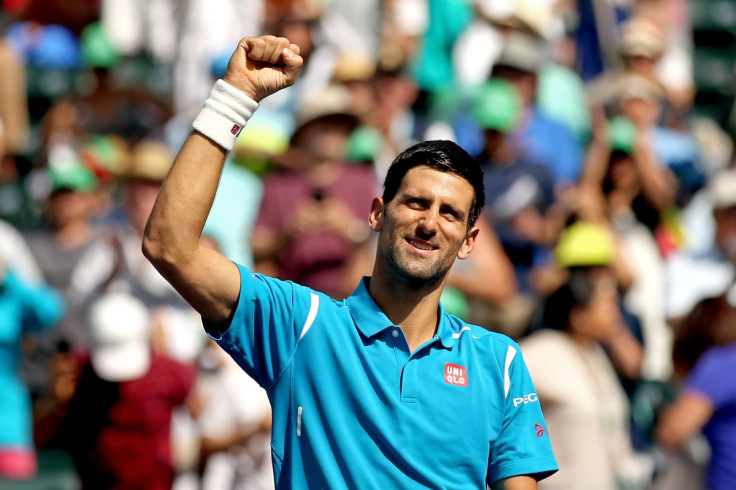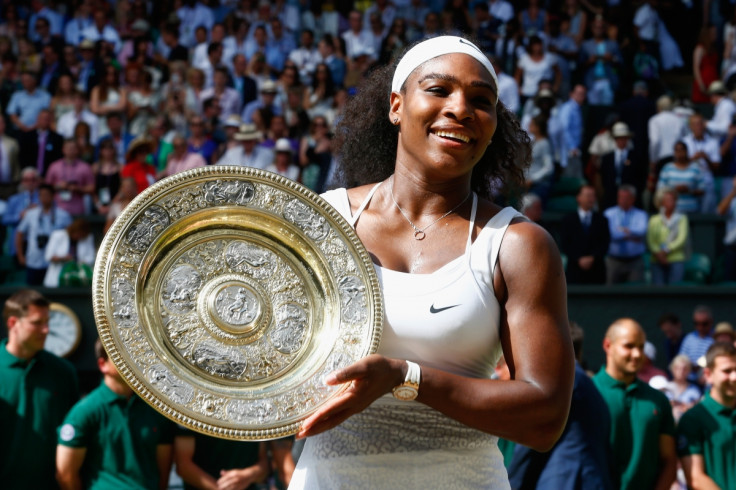Novak Djokovic's comments were not sexist - we're obsessed with playing up inequality that doesn't exist

Another day, another scandal over a supposedly sexist comment. This time, it's Novak Djokovic in the firing line for making comments about pay in tennis. Djokovic argued that both sexes should be paid on the basis of their merits, but because men's tennis is more popular than women's, men should earn more.
Yes, Djokovic then went on to garble a few odd comments about women's hormones and how much he admires our ability to still play sport even though we're cranky – hardly a hair-raising sexist rant. Nevertheless, Djokovic has been condemned as a sexist – a label so often used it's hard to know whether it has any meaning left.
There was nothing sexist about what Djokovic said. He was responding to comments made by Indian Wells Tennis Garden CEO Raymond Moore, who claimed that he would get on his knees and thank male tennis stars if he were a female player for 'carrying the sport'. Moore has since apologised for his pretty lame comments and has even since resigned, but it is Djokovic who has felt the full force of feminist wrath – simply because he said what he thought.
Pay gap politics is an untouchable area - any critique of the freak-out over equal pay is often met with accusations of internalised patriarchy or ignorance.
Never far from a social media controversy, Labour MPs Stella Creasy and Jess Phillips both waded in on Djokovic's comments about hormones. Phillips declared she 'can't even be bothered to be outraged' and yet, the issue is seemingly being treated very seriously. Pay gap politics is an untouchable area – any critique of the freak-out over equal pay is often met with accusations of internalised patriarchy or ignorance.
The fact is, when comparing like for like work on the same hours, men and women earn the same amount. It is illegal to pay men more than women for the same work – why would companies hire men if they could get away with paying women? The pay gap is often talked about in terms of averages and median which skews the reality. According to the most recent ONS survey, in the 22 to 29 age group, women are paid more than men. And yet, we are still obsessed with playing up an inequality that just doesn't exist.
If it's true that men are better paid in sport than women, it's because women's sport hasn't caught up to the level of success that men's has - presumably because men's sport has been around for longer. This isn't sexism, it's capitalism.
But what Djokovic was talking about wasn't a pay gap – it wasn't about equal pay for the same work. It's true that men's tennis draws a bigger crowd and the games are longer. Thus pay and prizes should be given according to the size of the achievements and the attraction of the sport. In the case of tennis, though the Williams sisters eclipse most male tennis players in both success and support, the game is mainly dominated by men.

This is slowly changing – in many areas of sport women are now becoming well known and watched. Women's football is gaining ground, the likes of Maria Sharapova, Serena Williams and Anna Kournikova have made women's tennis famous and the Olympics have brought more women to sporting fame than ever before. This has been through the achievements of the athletes and sports persons themselves – not tokenistic gestures of equality. Serena Williams called Moore's comments offensive, but she also gestured towards her and her sister's numerous wins as proof that he was incorrect.
Painting women as being in constant danger of oppression from sexist structures or even sexist comments undermines our position as strong, independent and capable individuals. If it's true that men are better paid in sport than women, it's because women's sport hasn't caught up to the level of success that men's has – presumably because men's sport has been around for longer. This isn't sexism, it's capitalism. Whatever draws the biggest crowd gets the biggest pay out.
The expectation for celebrities to conform to the current political fashion - especially feminism - is stifling public debate.
What is more shocking than Djokovic's rather mild views on a woman's relationship to her hormones is the horror that followed. We forget that celebrities – especially big tennis players – aren't role models. They don't need to have politically correct opinions or even political opinions – they are famous for their sporting ability.
John McEnroe turned the air blue but that didn't effect his ability to become one of the top tennis players in the world. The expectation for celebrities to conform to the current political fashion – especially feminism – is stifling public debate. If Djokovic, a world class tennis player, can't come out in defence of competitive pay for competitive work, what happens when the average Joe says something deemed equally offensive?
No woman in sport, or any competitive environment, would entertain the idea of being given a leg up or a hand out in the form of 50/50 representation or tokenistic equal pay initiatives. To do so would completely undermine their previous achievements. I want women's sport to be just as exciting as men's with just as big a fan base. But, for now, it isn't as popular and, dare I say it, sometimes men's sport is more exciting. The playing field isn't sexist or unfair, just most of the players are currently men. This wouldn't put off any determined female athlete – why should we argue that it affects the rest of women?
© Copyright IBTimes 2024. All rights reserved.









